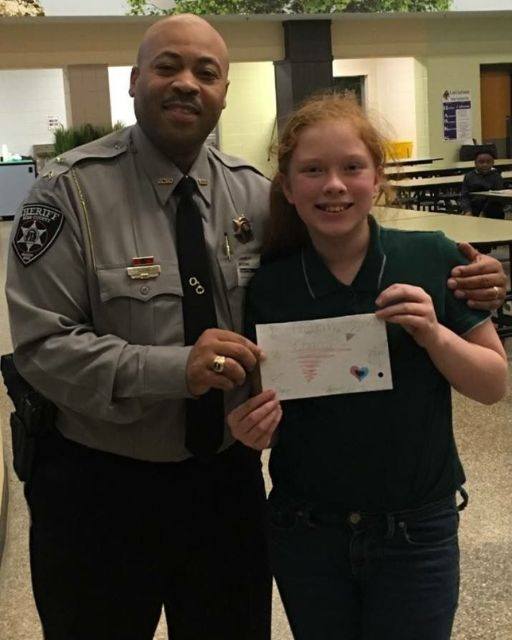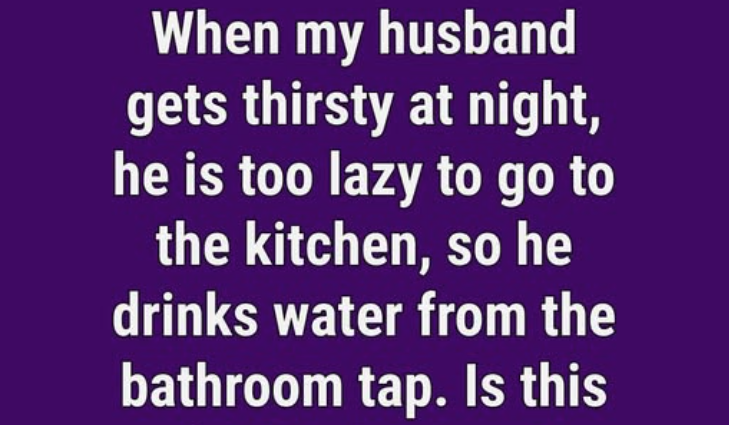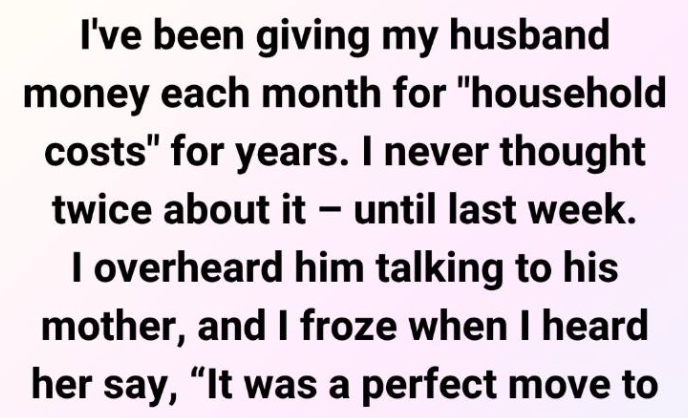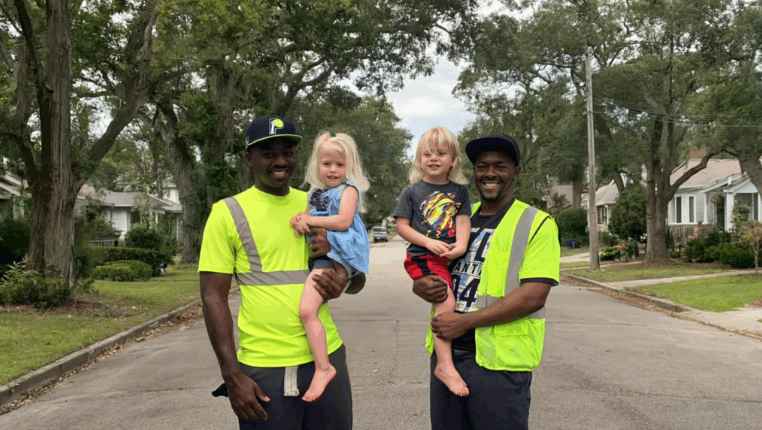They called all of us into the cafeteria for some school safety program. You know, the usual—respect, responsibility, stranger danger. I didn’t expect much. We were all half-distracted, some kids giggling in the back, others trying to sneak in phone time.
But when Deputy Harmon walked in, the room shifted.
Not just because he looked official—but because of her. Jenna.
She was always the quiet one. Sat near the window. Good grades, polite, barely spoke above a whisper. But that day? She walked right up to him with a card in her hand before he could even start talking.
It was homemade. Covered in doodled stars, red marker hearts, and big block letters that read, “THANK YOU.”
Everyone thought it was sweet. Until he opened it.
He stopped smiling.
Inside, in careful handwriting, she’d written:
“Thank you for helping my mom last year when she got scared. I never told anyone this, but I saw you that night from the hallway. You didn’t know I was awake.”
The room went quiet. Jenna’s hands were trembling a little, but her eyes were steady. Everyone waited for Deputy Harmon to say something, but he just stood there, reading the note again. Then slowly folded it and placed it in his pocket.
He cleared his throat, nodded at her, and said, “Thank you, Jenna,” like it meant something way bigger than those three words could carry.
Then he continued with his presentation, but nobody really listened the same after that.
When it was over, some kids whispered about it. A few shrugged it off. But I couldn’t stop thinking about what she meant. What had happened with her mom? What had he done that night?
It stayed with me for days.
By Thursday, I couldn’t help myself. Jenna was at her locker, quietly organizing her books like always. I walked over and asked, “Hey… about the card—what did you mean?”
She looked up, eyes wide like I’d caught her off guard, then hesitated. “I shouldn’t have written that. I didn’t think he’d read it in front of everyone.”
I shrugged. “It didn’t seem like he was mad. More like… sad?”
She nodded, slowly. “Yeah. Because he remembers.”
I didn’t expect her to tell me more. But maybe she needed to. Because she closed her locker, took a deep breath, and said, “You remember last year, in March? When my mom didn’t come to school pickup for three days?”
I remembered. There were rumors—sick relative, car trouble, even rehab. Kids talk.
“Well,” Jenna said, “she was going through something. My dad… he was already gone, had been for years. And her boyfriend back then, he wasn’t kind. He didn’t hit us. Not really. But he yelled. A lot. Broke things. Made us feel small. One night, it got worse.”
I felt a lump forming in my throat, but I let her speak.
“She locked herself in the bathroom with me. He was banging on the door, screaming. I’d never seen her that scared. She had her phone in her hand, shaking so bad she could barely dial. She called the cops. He didn’t know.”
She paused, glanced down the hallway like the memory might still be lurking there.
“Deputy Harmon showed up. Quietly. No sirens. Just knocked once, calm. And when he came in, he didn’t draw his weapon. He just… talked. Got the guy to leave. No arrests. No drama. Just gone. And after? He sat with my mom in the kitchen. Gave her a number to call. Helped her make a plan.”
I blinked. “You saw all of that?”
She nodded. “From the hallway. I was hiding behind the coat rack. I saw him pour her a glass of water. He even joked about her cat’s name. Tried to make her smile.”
It didn’t sound like a big heroic story. No chase, no gunfire, no headlines. But it felt bigger than anything I’d heard in a while.
“Why didn’t you ever tell anyone?” I asked.
She shrugged. “I didn’t think anyone would care. It didn’t feel like a story worth telling. But I always remembered how safe he made us feel.”
After that, I looked at Deputy Harmon differently.
Weeks passed. Things went back to normal. Or so I thought.
Until one morning, Jenna wasn’t at school. Then another. And another.
I didn’t want to pry, but something felt off. I finally asked our teacher, Ms. Lane, if she was okay. She just said, “Family emergency,” and changed the subject.
Then, the following Monday, Jenna walked in with dark circles under her eyes and a forced smile. She looked smaller, somehow.
We caught up after lunch. She told me her mom had collapsed at work. Some kind of exhaustion-related fainting spell. They’d kept her overnight in the hospital.
“She’s working two jobs now,” Jenna said quietly. “Night shifts, double weekends. I try to help, but I’m only fifteen.”
I didn’t know what to say. “That’s a lot.”
Jenna nodded. “Sometimes I feel like I’m the mom now.”
She wasn’t being dramatic. Just honest.
Later that week, I saw something strange. After school, Jenna was walking toward a car—but it wasn’t her mom’s. It was Deputy Harmon’s.
I didn’t say anything at first. But the next day, curiosity got the better of me.
“You getting rides from him now?” I asked.
She smiled. “Just once in a while. If my mom can’t make it. He said he checks in on people he helps. I think he sees we’re trying.”
There was something so… decent about that. No cameras. No press. Just a guy doing what felt right.
Then came the twist.
One rainy afternoon, Jenna was called to the office. She didn’t come back. Then the news started spreading.
Her mom had gone missing.
The school counselor made an announcement later, trying to keep things calm. “Jenna’s with a family friend. They’re working with the authorities.”
But I knew who that “friend” was.
I saw Deputy Harmon pacing in the hallway that evening. Soaked from the rain, phone to his ear, eyes scanning every corner like he could will her mom to appear.
Days turned to a week.
Rumors flew again. Drugs. Debt. Abandonment. But I didn’t believe them. Neither did Jenna.
“She wouldn’t leave me,” she said, voice shaking. “She promised.”
And then, one night, I got a call.
From Jenna.
“I found something,” she whispered.
“What do you mean?”
“There’s a storage key in her drawer. And a receipt from a bus station. From two nights before she disappeared.”
My stomach dropped. “You told the police?”
She hesitated. “They said it might not mean anything. But Harmon said he’d take me to check.”
The next day, they went. Turns out, her mom had left town—but not by choice.
They found her in a small motel outside the city. Barely conscious. Drugged. The ex-boyfriend, the one from before, had come back. Found her. Manipulated her into trusting him again.
Then took her.
It wasn’t a dramatic rescue. No standoff. Just Harmon showing up quietly, finding the room, calling backup, and getting her out.
She survived. Needed time, detox, counseling. But she came back.
And this time? Jenna’s mom didn’t go back to the job or the bad choices. With help from the sheriff’s department, she got into a support program. Found stable housing. Started over.
I saw Jenna’s smile again. A real one.
At the end-of-year assembly, they called her on stage for an award—“Courage in Community.” She didn’t expect it. But she walked up, calm, collected.
And then? She handed Harmon another card.
This time it said, “Thank you for not giving up on us.”
He opened it.
Inside was a photo of Jenna and her mom, smiling in their new apartment.
And a note that read, “Your kindness didn’t just help. It saved.”
The whole auditorium stood up.
He didn’t say much. Just hugged her gently, like family.
Looking back, I realize—heroes don’t always wear capes. Sometimes they wear badges. Or carry thank-you cards in their pockets as reminders of quiet moments that changed lives.
It also reminded me that the smallest act of kindness—pouring a glass of water, showing up when no one else does, believing someone when they say “something’s wrong”—can ripple farther than we ever imagine.
Sometimes, it takes just one person to believe you’re worth saving.
So now I ask you—have you ever seen someone do something quietly heroic? Something that changed a life without needing applause?
Share this with someone who might need to hear it. And if you believe kindness matters, like this post. Let’s make stories like Jenna’s the ones that get told.




